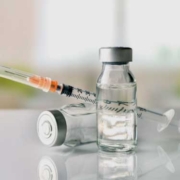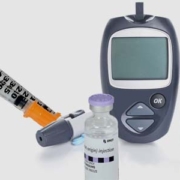Weight Loss Shots: What’s Better Ozempic, Wegovy, Mounjaro or Zepbound?
GLP1 Weight Loss Shots: Which One is Right for Me?
Revolutionary new GLP1 weight loss shots like Ozempic have transformed medical weight management – offering new hope for millions of Americans struggling with obesity, excess pounds, and weight-related health conditions. These injectable weight loss medications work by mimicking natural hormones that regulate blood sugar, slow gastric emptying, and significantly reduce appetite, leading to substantial weight loss when used appropriately under medical supervision. These weight loss shots are likely the reason that so many of your favorite celebrities – even those like Oprah who are known for struggling to lose weight – are now slender.
The great news is that Ozempic – and the many weight loss shots that came after it – are now available to everyday people with a prescription! However, with multiple GLP1 weight loss shots now available, including Ozempic, Wegovy, Mounjaro, and Zepbound, patients often feel overwhelmed trying to understand which medication might be most appropriate for their individual circumstances, health issues, and weight loss goals.
While the popularity of GLP1 weight loss shots has exploded in recent years, this surge in demand has unfortunately also led to widespread misuse of weight loss shots – including potentially dangerous self-administration without proper medical oversight. At Ruthie Harper, MD’s practice in Austin, TX, patients receive comprehensive evaluation and ongoing monitoring to ensure they receive the most appropriate GLP1 weight loss shots for their specific needs while minimizing risks and maximizing benefits through personalized medical weight loss programs.
Understanding the differences between various GLP1 weight loss shots, their mechanisms of action, intended uses, and potential side effects is crucial for making informed decisions about weight loss treatment. More importantly, working with an experienced weight loss doctor ensures that GLP1 weight loss shots are integrated into a comprehensive treatment plan that addresses all aspects of sustainable weight management, from proper nutrition and exercise to ongoing medical monitoring and support that maximizes success while protecting patient health and safety.
How GLP1 Weight Loss Shots Work
GLP1 weight loss shots belong to a class of medications called ‘incretin mimetics’, which work by mimicking the action of glucagon-like peptide-1 (GLP-1), a naturally occurring hormone produced in the intestines that plays a crucial role in regulating blood sugar and appetite. When patients receive GLP1 weight loss shots, these medications bind to GLP-1 receptors throughout the body, particularly in the pancreas, stomach, and brain, triggering a cascade of physiological responses that promote weight loss through multiple mechanisms that weight loss doctors understand and can optimize for individual patients.
The primary mechanism through which GLP1 weight loss shots promote weight loss involves slowing gastric emptying, which means food remains in the stomach longer, creating feelings of fullness and satiety that naturally reduce caloric intake. Additionally, GLP1 weight loss shots directly affect the brain’s appetite control centers, specifically the hypothalamus, reducing cravings and the desire to eat large portions. Weight loss doctor Ruthie Harper, MD explains to her patients that these medications essentially help restore normal appetite regulation that may have been disrupted by years of metabolic dysfunction, insulin resistance, or other underlying health issues.
GLP1 weight loss shots also improve insulin sensitivity and glucose metabolism, which can be particularly beneficial for patients with prediabetes, Type 2 diabetes, or metabolic syndrome. This dual action on both weight and metabolic health makes GLP1 weight loss shots especially valuable for patients with multiple health concerns related to excess weight. However, the complexity of these mechanisms underscores why GLP1 weight loss shots should only be prescribed and monitored by qualified weight loss doctors who understand how to optimize dosing and timing for individual patient needs while monitoring for potential complications.
Ozempic: The Original GLP1 Weight Loss Shot
Ozempic, containing the active ingredient semaglutide, was originally developed and FDA-approved for the treatment of Type 2 diabetes, but its significant weight loss effects quickly made it popular as an off-label option among the GLP1 weight loss shots available to weight loss doctors. Manufactured by Novo Nordisk, Ozempic is administered as a once-weekly subcutaneous injection and works by activating GLP-1 receptors to improve blood sugar control while simultaneously promoting weight loss through appetite suppression and delayed gastric emptying.
While Ozempic has proven effective for weight loss, weight loss doctors must carefully consider that its primary FDA indication remains diabetes management, which means the dosing protocols and monitoring requirements may not be optimized specifically for weight loss in non-diabetic patients. The medication is available in pre-filled pens with doses of 0.25 mg, 0.5 mg, 1 mg, and 2 mg, allowing weight loss doctors to start patients at low doses and gradually increase as tolerated to minimize side effects while maximizing benefits.
Experienced weight loss doctors like Dr. Harper understand that using Ozempic for weight loss requires careful patient selection and monitoring, as the medication can cause significant side effects including nausea, vomiting, diarrhea, and potential complications such as pancreatitis or gallbladder problems. Additionally, weight loss doctors must ensure that patients using Ozempic receive adequate nutrition and maintain muscle mass during weight loss, as rapid weight reduction without proper oversight can lead to loss of lean body mass rather than just fat reduction.
Wegovy: FDA-Approved Weight Loss Shot for Obesity
Wegovy represents the first GLP1 weight loss shot specifically approved by the FDA for chronic weight management in adults with obesity or overweight individuals with at least one weight-related health condition. Also containing semaglutide as its active ingredient, Wegovy is essentially a higher-dose version of Ozempic that has been specifically studied and approved for weight loss, making it the preferred choice among GLP1 weight loss shots for weight loss doctors treating obesity as the primary concern rather than diabetes.
The clinical trials supporting Wegovy’s approval demonstrated impressive weight loss results, with participants losing an average of 12-15% of their body weight when combined with lifestyle interventions. Weight loss doctors prescribing Wegovy appreciate that its FDA approval for weight loss means the dosing protocols, safety monitoring requirements, and efficacy data are specifically designed for weight management rather than diabetes control, providing clearer guidelines for optimal use in weight loss treatment.
Wegovy is available in pre-filled pens with graduated dosing that allows weight loss doctors to start patients at 0.25 mg weekly and gradually increase to the maintenance dose of 2.4 mg weekly over several months. This careful dose escalation that experienced weight loss doctors follow helps minimize gastrointestinal side effects that can be significant with GLP1 weight loss shots while allowing patients to adapt to the medication’s effects. Weight loss doctors emphasize that Wegovy, like all GLP1 weight loss shots, requires ongoing medical supervision and should be part of a comprehensive weight management program.
Mounjaro: The Dual-Action GLP1 Weight Loss Shot
Mounjaro, containing the active ingredient tirzepatide, represents a significant advancement among GLP1 weight loss shots because it works as a dual incretin receptor agonist, targeting both GLP-1 and GIP (glucose-dependent insulinotropic polypeptide) receptors. This dual mechanism of action often results in more significant weight loss compared to traditional GLP1 weight loss shots, making it an attractive option for weight loss doctors treating patients who need substantial weight reduction or who haven’t responded adequately to other medications.
Manufactured by Eli Lilly, Mounjaro was initially approved for Type 2 diabetes treatment, but its remarkable weight loss effects have made it a popular choice among weight loss doctors for off-label weight management. Clinical studies have shown that patients receiving Mounjaro can achieve weight loss of 15-20% or more, which often exceeds the results seen with other GLP1 weight loss shots. Weight loss doctors appreciate this enhanced efficacy, particularly for patients with significant obesity or those who have struggled with other weight loss interventions.
The dual receptor action of Mounjaro affects multiple pathways involved in appetite regulation, glucose metabolism, and fat storage, providing weight loss doctors with a powerful tool for comprehensive metabolic improvement. However, this enhanced potency also means that weight loss doctors must exercise even greater caution in patient selection, dosing, and monitoring when prescribing Mounjaro compared to other GLP1 weight loss shots. The medication requires careful titration starting at 2.5 mg weekly and potentially increasing to 15 mg weekly based on patient response and tolerance.
Zepbound: The Newest FDA-Approved Weight Loss Shot
Zepbound, also containing tirzepatide as its active ingredient, represents the newest addition to FDA-approved GLP1 weight loss shots specifically indicated for chronic weight management. Essentially the weight loss version of Mounjaro, Zepbound has been studied and approved specifically for obesity treatment, providing weight loss doctors with clear guidelines for using this powerful dual incretin agonist in patients whose primary concern is weight management rather than diabetes control.
The approval of Zepbound gives weight loss doctors access to the impressive weight loss benefits of tirzepatide with dosing and monitoring protocols specifically designed for weight management. Clinical trials supporting Zepbound’s approval demonstrated that patients could achieve average weight loss of 18-22% when the medication was combined with lifestyle interventions, making it one of the most effective GLP1 weight loss shots available for treating obesity.
Weight loss doctors prescribing Zepbound appreciate having FDA-approved labeling and dosing guidelines specifically for weight loss, which provides clearer direction for optimal use compared to off-label prescribing of diabetes medications. However, the potency of Zepbound among GLP1 weight loss shots also means that weight loss doctors must carefully evaluate patients for contraindications and monitor closely for side effects, particularly gastrointestinal symptoms and potential complications such as pancreatitis, gallbladder disease, and thyroid concerns.
Why Specialized Doctors Are Essential for Safe Weight Loss Shots
The complexity and potency of GLP1 weight loss shots require specialized knowledge and experience that only qualified weight loss doctors possess to ensure safe and effective treatment. These medications can cause significant side effects, interact with other medications, and may not be appropriate for patients with certain medical conditions, making proper evaluation by experienced weight loss doctors essential before starting treatment. Weight loss doctors understand how to assess patients for contraindications, select the most appropriate medication and dosing regimen, and monitor for potential complications that could arise during treatment.
Proper patient selection for GLP1 weight loss shots involves comprehensive evaluation of medical history, current medications, underlying health conditions, and weight loss goals that only experienced weight loss doctors can adequately perform. Certain conditions such as personal or family history of medullary thyroid carcinoma, multiple endocrine neoplasia syndrome, severe gastrointestinal disease, or eating disorders may contraindicate the use of GLP1 weight loss shots, and weight loss doctors are trained to identify these risk factors and recommend alternative treatments when appropriate.
Weight loss doctors also understand the importance of proper dosing and titration schedules for GLP1 weight loss shots, as starting doses that are too high or advancing too quickly can lead to severe side effects that may require medication discontinuation. The gradual dose escalation protocols that weight loss doctors follow help patients adapt to the medication while minimizing adverse effects, improving treatment adherence and long-term success with GLP1 weight loss shots.
Importance of Blood Work & Monitoring with Weight Loss Shots
Regular laboratory monitoring represents a crucial component of safe GLP1 weight loss shots treatment that only qualified weight loss doctors can properly oversee and interpret. These medications can affect multiple organ systems, including the pancreas, liver, kidneys, and thyroid, making ongoing blood work essential for detecting potential complications before they become serious health problems. Weight loss doctors typically monitor pancreatic enzymes to screen for pancreatitis, liver function tests to ensure hepatic safety, kidney function markers, and thyroid function studies, particularly given concerns about thyroid tumors seen in animal studies with GLP1 weight loss shots.
Beyond safety monitoring, weight loss doctors use regular blood work to optimize the effectiveness of GLP1 weight loss shots by tracking markers of metabolic health, including glucose levels, insulin sensitivity, lipid profiles, and inflammatory markers. This comprehensive monitoring allows weight loss doctors to adjust treatment plans, modify dosing, or add complementary therapies to maximize the benefits of GLP1 weight loss shots while addressing any underlying metabolic dysfunction that may be contributing to weight gain or preventing optimal weight loss.
Weight loss doctors also recognize the importance of monitoring nutritional status in patients receiving GLP1 weight loss shots, as the significant appetite suppression and reduced food intake can lead to nutritional deficiencies if not properly managed. Regular assessment of vitamin and mineral levels, protein status, and overall nutritional markers helps weight loss doctors ensure that patients maintain adequate nutrition while losing weight, preventing complications such as muscle loss, fatigue, hair loss, and other symptoms of malnutrition that can occur with rapid weight loss.
Fat Loss Rather Than Muscle Loss with Weight Loss Shots
One of the most critical aspects of weight loss that experienced weight loss doctors address when prescribing GLP1 weight loss shots is ensuring that patients lose fat mass rather than lean muscle tissue. Rapid weight loss without proper oversight can result in significant muscle loss, which can slow metabolism, reduce functional capacity, and lead to poor long-term weight maintenance outcomes. Weight loss doctors use specialized testing such as body composition analysis, DEXA scans, or bioelectrical impedance to monitor changes in fat mass versus muscle mass throughout treatment with GLP1 weight loss shots.
Weight loss doctors understand that preserving muscle mass during treatment with GLP1 weight loss shots requires careful attention to protein intake, resistance training, and overall nutritional adequacy. The appetite suppression caused by these medications can make it challenging for patients to consume adequate protein, making supplementation and careful meal planning essential components of treatment that weight loss doctors must address. Additionally, weight loss doctors often incorporate strength training and exercise programs to stimulate muscle protein synthesis and prevent muscle loss during the weight reduction phase.
The expertise of weight loss doctors becomes particularly important in adjusting treatment plans when body composition analysis reveals excessive muscle loss or inadequate fat reduction. This might involve modifying the dosage of GLP1 weight loss shots, adjusting nutritional recommendations, adding specific supplements, or incorporating additional therapies to optimize body composition changes. Without this specialized monitoring and intervention that weight loss doctors provide, patients may experience suboptimal results or potentially harmful effects from their weight loss treatment.
Medical Weight Loss Programs Maximize Weight Loss Shots Effectiveness
Weight loss doctors like Dr. Harper understand that GLP1 weight loss shots are most effective when integrated into comprehensive medical weight loss programs that address all aspects of sustainable weight management. While these medications provide powerful appetite suppression and metabolic benefits, long-term success requires addressing underlying factors contributing to weight gain, including hormonal imbalances, nutritional deficiencies, metabolic dysfunction, stress management, sleep optimization, and behavioral patterns that weight loss doctors are trained to identify and treat.
A comprehensive approach to GLP1 weight loss shots treatment includes personalized nutrition planning that ensures adequate protein intake, micronutrient sufficiency, and proper meal timing to support both weight loss and overall health. Weight loss doctors work with patients to develop sustainable eating patterns that complement the appetite suppression effects of GLP1 weight loss shots while providing the nutrients necessary for optimal metabolism, muscle preservation, and long-term health maintenance.
Exercise programming represents another crucial component of comprehensive weight loss treatment that weight loss doctors incorporate alongside GLP1 weight loss shots. Structured exercise plans that include both cardiovascular training and resistance exercise help maximize fat loss, preserve muscle mass, improve insulin sensitivity, and enhance the metabolic benefits of GLP1 weight loss shots. Weight loss doctors understand how to design exercise programs that complement the effects of these medications while accounting for any physical limitations or health concerns that patients may have.
Supplements and GLP1 Weight Loss Shots
Weight loss doctors recognize that patients receiving GLP1 weight loss shots often require targeted supplements to maintain optimal nutritional status during rapid weight loss and reduced food intake. The appetite suppression and delayed gastric emptying caused by these medications can make it challenging for patients to consume adequate vitamins, minerals, and other essential nutrients through food alone, making professional guidance from weight loss doctors essential for preventing nutritional deficiencies that could compromise health or weight loss success.
Common supplements that weight loss doctors may recommend for patients using GLP1 weight loss shots include high-quality multivitamins, vitamin B12, vitamin D, magnesium, omega-3 fatty acids, and protein powders to ensure adequate intake of essential nutrients. Weight loss doctors also monitor for specific deficiencies that may develop during treatment, such as thiamine deficiency, which can occur with rapid weight loss and reduced carbohydrate intake, or iron deficiency, particularly in women with heavy menstrual periods who may have increased needs during weight loss.
The expertise of weight loss doctors becomes crucial in selecting appropriate supplements that won’t interfere with the absorption or effectiveness of GLP1 weight loss shots while addressing individual patient needs based on their medical history, dietary restrictions, and laboratory findings. Weight loss doctors also understand the importance of timing supplement administration to optimize absorption and avoid potential interactions with the medication or other supplements that patients may be taking.
Weight Loss Shots | Austin, TX
GLP1 weight loss shots represent a revolutionary advancement in medical weight management, offering unprecedented opportunities for significant, sustainable weight loss when used appropriately under the guidance of experienced weight loss doctors. However, the complexity of these medications, their potential side effects, and the importance of comprehensive treatment approaches underscore the critical need for specialized medical supervision that only qualified weight loss doctors can provide.
Whether you’re a candidate for Ozempic, Wegovy, Mounjaro, or Zepbound, working with weight loss doctor Ruthie Harper, MD in Austin, TX ensures that you receive the most appropriate medication, proper dosing, comprehensive monitoring, and integrated treatment approach necessary for safe and effective weight loss. Dr. Harper’s expertise in medical weight management and her commitment to comprehensive care help patients achieve their weight loss goals while maintaining optimal health and preventing complications.
Don’t risk your health with inadequate medical supervision by trying to navigate the complex world of GLP1 weight loss shots alone. Contact our office today to schedule an appointment and learn how a comprehensive medical weight loss program incorporating the most appropriate GLP1 weight loss shots can help you achieve lasting weight loss success safely and effectively.











